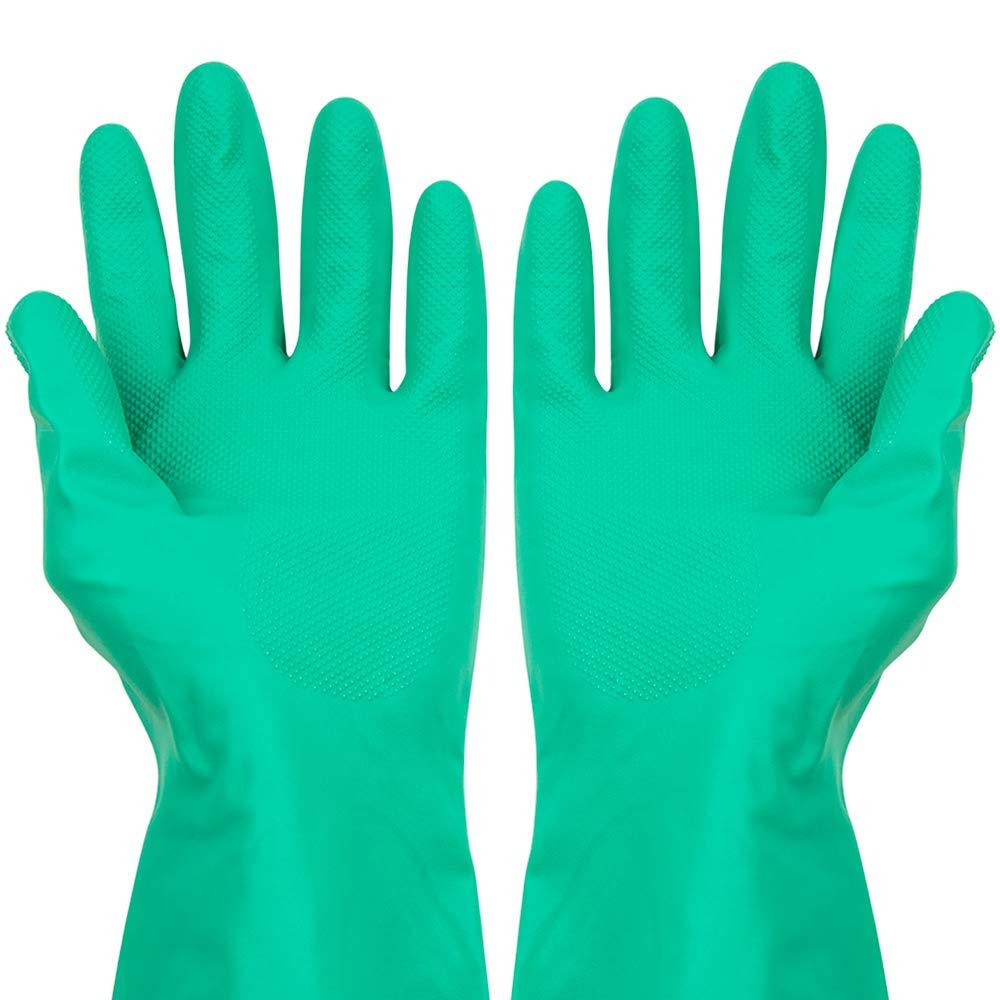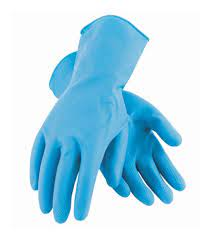2021/05/30 / By hqt / Tags:
5 Pro Tips of Chemical Gloves: Expert Guide 2021
How to use protective gloves properly while working in hazards chemical?

We are here to talk about reliable skin protection equipment, known as chemical gloves.
When should you use chemical gloves to serve?
The chemical glove serves to protect the worker's hands and skin, against cracks, cracks, dehydration, and against prominent dryness from contact with chemicals.
Do the chemical gloves replace the physical glove?
The gloves that you use in hazards chemical can replace 100% the physical glove as to the agents that are in the corresponding group.
The limitation is that the chemical protective gloves do not protect against abrasive, cutting, scoring and shock agents.
Do the chemical gloves have CA?
The ones from Nutriex that are serving as the basis for this article have. What says that the chemical glove is PPE (Personal Protective Equipment)!
What are the important questions of tact?
The good thing about chemical gloves is that they allow protection even in places where the physical glove is complicated. There are places where the use of the glove, for example, scrapes makes it difficult for the worker to feel. At that point I remember when I worked as a Bricklayer Servant.
When I used a scrape glove to, for example, remove ceramics from the floor, and lost sensitivity (touch). To compensate, he held the objects more tightly (mallet and chisel), and ended the day with his hands hurting a lot.
When we choose a chemical glove (when it is possible to choose a chemical glove), this does not happen.
What are the chemical gloves indications and types?
Below 3 groups of chemical gloves and their applications:
How to choose your chemical gloves according to your activities?
First of all, the laboratory technician must first list the criteria for each object or product to be handled in order to adapt the type of glove to be used:
- What are the properties of the object or product? Risk of abrasion, burning...?
- The type of exposure: Continuous hand immersion? Protection against possible splashes? Occasional exposure to the product or material?
- Short or long gloves?
- Disposable gloves or reusable gloves? Define the cleaning mode for reusable gloves (decontamination).
- Need to wear soft gloves in order to have tactile sensitivity?
Once the type has been identified, the laboratory technician must check whether the chemical gloves have no holes before using them (fill with air or water in case of doubt).
What are the different types of materials of chemical gloves?
Latex glove (natural rubber):
Properties:
Generally, it has excellent elasticity (flexibility) and good resistance to wear as well as to aqueous or diluted solutions.
Use:
Generally, it is recommended for use involving precise handling and tactile sensitivity. .
Nitrile glove (synthetic rubber):
Properties:
Good mechanical resistance (only concerns reusable gloves), good protection against chemicals (resistance to oils, greases, primary alcohols, aliphatic hydrocarbons, aqueous solutions).
Use:
It is good for precise handling and tactile sensitivity. Should not be recommended in cold environments (<- 40 ° C) for risks of stiffening (difficult use).
Neoprene glove (synthetic rubber):
Properties:
Well resistant to strong acids/bases and aqueous solutions.
Use:
Recommended for use involving precise handling and tactile sensitivity.
PVC glove also called Vinyl (thermoplastic polymer):
Properties:
It provides correct resistance to acids/bases and alcohols in the case of reusable chemical gloves.
Use:
Basically, it should be limited to low-risk situations.
Leather glove (crust):
Properties:
Resistant, heat-resistant, withstands humidity.
Use:
Generally used for handling hot objects.
Cotton glove:
Properties:
Good resistance, comfortable, low stretch, heat resistant (<50 ° C) for short periods of time and hygienic (absorbs perspiration).
Use:
It is good for basic object manipulation. Does not protect against chemicals and liquids.
In the warehouse, the hands are the most exposed members of the operators. For this reason, equipping your handlers is not only common sense, but an obligation.
How to choose the right chemical gloves according to the standards?
Discover a simple and clear RAJA guide for your next purchases.
The various risks to which your employees are exposed
Warehouse work is, in essence, manual. The hands of your employees are therefore particularly exposed to various risks.
Depending on the sector of activity in which you operate, these risks may be more or less extreme:
What are the different types of risks?
Mechanical risks:
It is the most common, but also the most disabling. We are talking here about the risk of crushing, cuts or perforations to which we are exposed when wearing or moving an object for example.
Thermal hazards:
Hands are extremely sensitive to temperature. If you are working in particularly hot or cold environments, you should choose suitable protective equipment.
Chemical risks:
Some operators have to handle chemicals that are particularly harmful to the skin. Hence, in such situations, chemical gloves are highly recommended.
Electrical risks:
Warehouses that store electrical and electronic products run the risk of electrocution to their handlers (discharges, conductivity, etc.).
Also learn about hand protection and personal safety at work!
It's no surprise to anyone: hands and fingers are the parts of the body most often injured at work. These are mostly cutting and bruise, but hand contact with chemicals is also a risk.
You can protect yourself by wearing safety gloves that you will however have to choose according to the activity performed and the protection they offer. Find out more about hand protection and personal safety at work in this article.
What safety gloves do you need?
To choose the right gloves, it is important to properly assess the risks in your workplace. Are you looking for cut resistant gloves, heat resistant or just thermal work gloves? Do you need protection against chemicals, electricity or vibrations?
Furthermore, this information is essential to make the right choice. It is therefore essential for you to make an inventory of the tasks that you accomplish.

For chemical protection, you need chemical gloves for the safety of your hands.
What are other points of attention when choosing safety gloves?
- Choose safety gloves that meet European standards. You will recognize them by their CE marking;
- Take into account the duration of the wearing. Comfort is extremely important, especially if work gloves have to be worn for a long time;
- Also consider aspects like mobility, finger sensitivity and glove grip. For precision work, use gloves other than for heavy work.


